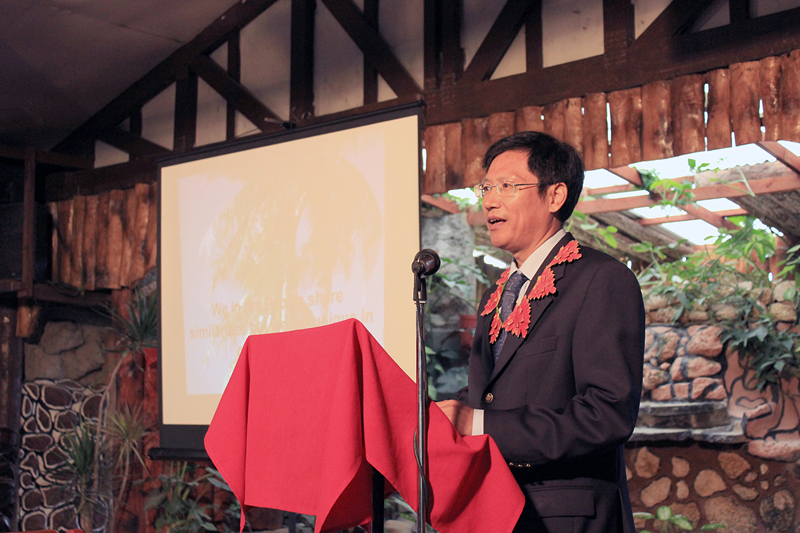Last month Kaniva News visited China at the invitation of the Chinese Communist Part Centre for International Exchanges.
In this series of reports, we bring you China as they see themselves.
Based on documents provided by our hosts, this is the official view of China: A rising giant with an enormous population, enormous potential, but serious problems with an acute lack of resources, facing internal problems and often overshadowed by a strong sense of grievance at the way China has been treated in the past.
With China active throughout the region and often in competition with other powers for influence and prestige, it is important that we try to understand China and how they see themselves.
In this final of our three reports we look at the future of China through the eyes of its rulers.
Problems and goals for the future
There are serious problems with uneven, unco-ordinated and unsustainable development. This is represented mainly by inefficient development, a lack of innovation capability, excess capacity in certain industries, declining corporate revenue, and frequent instances of big accidents.
Resource constraints are becoming more serious and environmental degradation is yet to be meaningfully reversed.
Inadequate supply of basic public services are inadequate.
There is a huge income gap, the population is ageing rapidly and eradicating poverty will be a daunting task.
The Fifth Plenum of the 18th Communist Party Central Committee set the following goals:
An overall increase of living standards and quality of life. All the population living in poverty by current Chinese standards shall be lifted from poverty and all poverty-stricken counties will no longer be poor. Regional poverty issues shall be addressed.
There will be a clear increase in the calibre of all citizens and a much more civilized society.
An overall improvement of the ecological environment.
Systems of all areas shall become more mature and fixed, and major progress shall be made in modernizing national governance system and capacity.
The following ideas were put forward at the plenum:
We must put innovation at the heart of the country’s development approach, and constantly seek innovation in theories, systems, science and technology and culture.
We will focus on promoting co-ordinated development between urban and rural areas and among different regions, and facilitate coordinated economic and social development. We will ensure that industrialisation, informatisation, urbanisation and modernisation of agriculture develop in tandem. We shall boost both hard power and soft power of the nation.
We must remain committed to the basic national policy of conserving resources and protecting the environment, and to sustainable development. We shall press ahead with the development of a Beautiful China.
We must build on the trend of the Chinese economy integrating deeply into the world economy by further opening-up.
We must bear in mind the principle of ‘development for the people, by the people and to the benefit of the people’. More effective institutional arrangements shall be made to ensure that the people have a stronger feeling that they actually benefit from development.
Lessons from China’s reform and opening up efforts
Things need to be done to match the reality of the country’s situation.
Do what the people want, respect their ingenuity, and draw on the wisdom of everyone.
Formulate the right reform and development strategies.
Strike a balance between reform, development and stability.
Size opportunities presented by economic globalization.
Determine reform steps and pace independently.
The main points
- China must overcome a number of serious problems in the future.
- These include uneven, unco-ordinated and unsustainable development, lack of innovation and frequent instances of big accidents.
- Resources are becoming scarcer end environmental degradation is yet to be meaningfully reversed.
- The supply of basic public services is inadequate.
For more information
China’s Twilight Years (The Atlantic)
China corruption crackdown ‘netted 300,000 in 2015’ (BBC)
China has reached its environmental tipping point (The Guardian)







